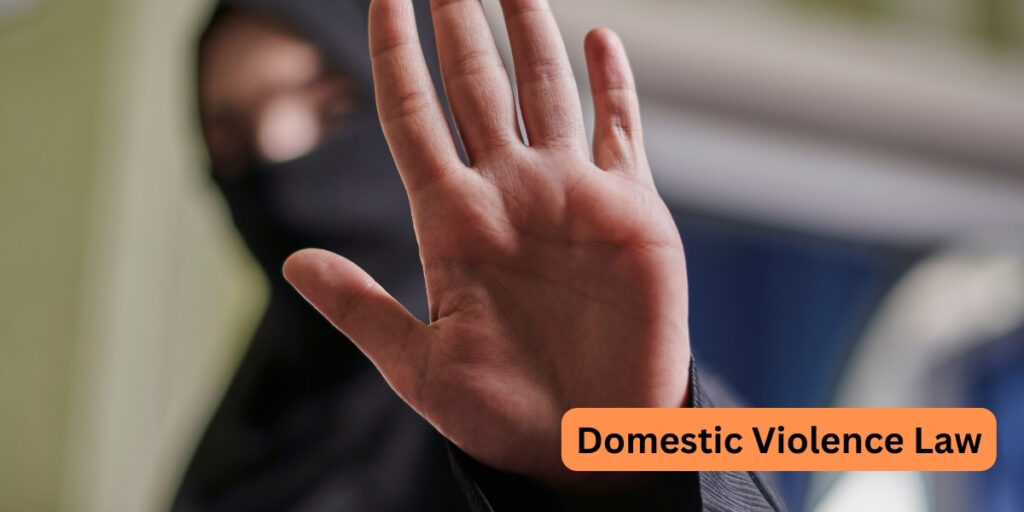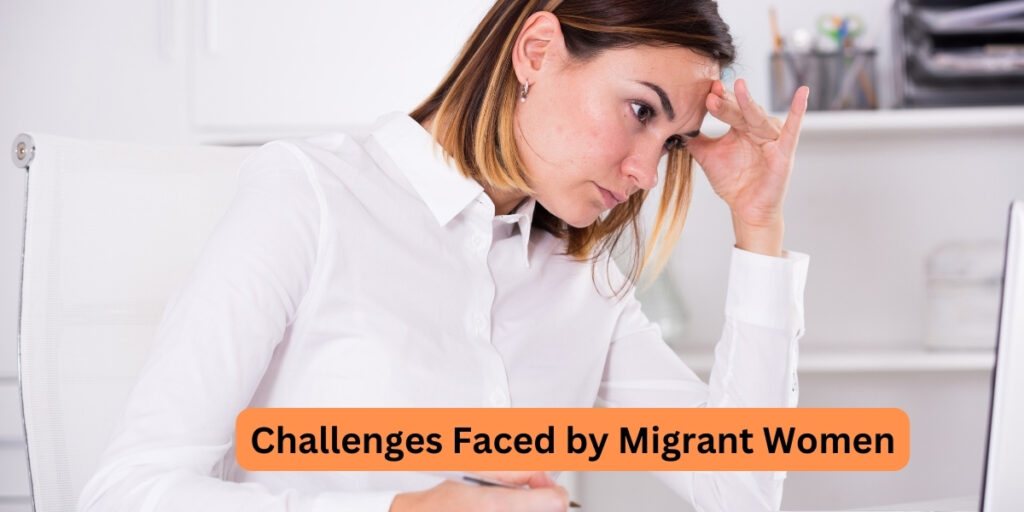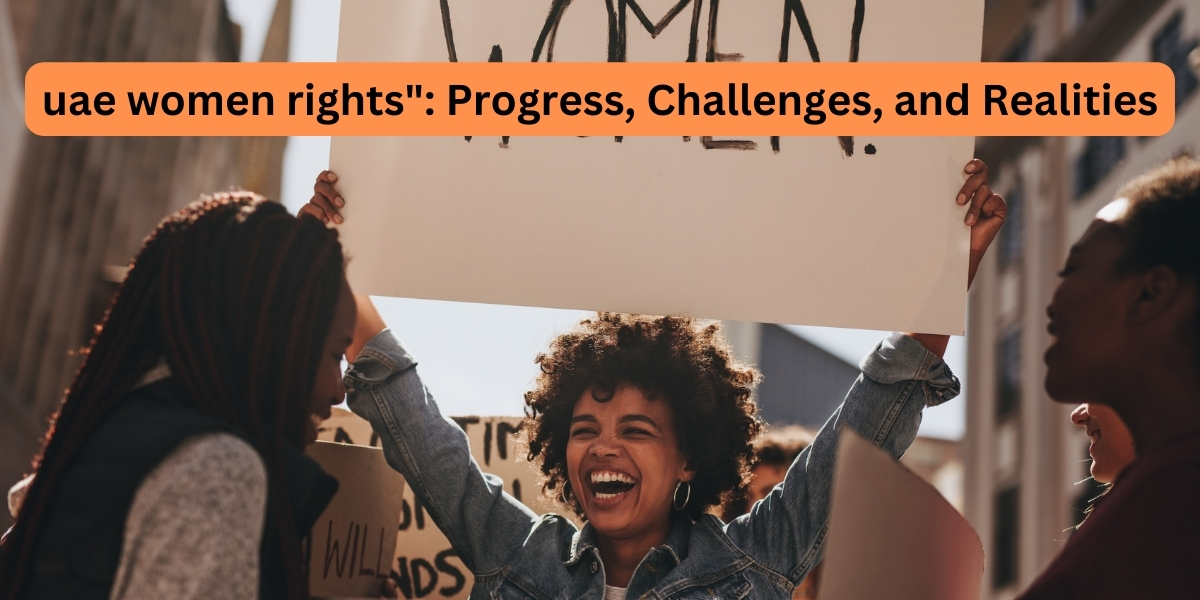Table of Contents
ToggleIntroduction
Hey everyone! Today, we will discuss something very important: UAE women rights. Some progress has been made in the UAE to improve women’s rights, but there is still a long way to go. Reforms to women’s rights in the UAE have been the subject of much argument, especially in the last few years. A lot of changes have been made in the country to help women, but there are still a lot of problems. In this blog post, we’ll talk about the different reforms, the issues that still need to be solved, and how these changes have affected women’s lives in the UAE. Allow us to begin and look more closely at this complicated matter.
Legal Reforms and Challenges
A big step forward is that the UAE has passed some new rules to protect women better. For example, new laws have been passed to protect women from domestic violence and give them a formal way to report abuse. It is a significant change in a society where talking about domestic abuse has been frowned upon for a long time.
But discrimination against women and girls is still a big problem, even with these changes. There are still male guardians who live with women in the UAE, which limits their freedom and independence. For women, this means that men, usually dads, brothers, or husbands, have a lot of power over many parts of their lives, like their freedom to travel, work, or make personal choices.
One of the scariest things about this legal system is that men who kill female cousins in so-called “honour killings” get lighter sentences. This not only supports a culture of impunity but also shows how deeply ingrained gender bias is in the judicial system. Even though some progress has been made, these problems show how hard it is for women to get absolute equality.
Women’s rights are still often put second to what people think is necessary to protect family honour and social rules. It makes it possible for women to feel afraid or alone, especially when they are victims of domestic violence or other types of violence.
Also, changes to the law are often met with opposition from people in society. Laws can be changed quickly, but deeply held cultural beliefs and social norms take longer. For this reason, women may still have difficulty practising their rights, even if the law protects them.
Positive Changes in Legislation
Some good changes to the law in the UAE have made a big difference for women’s rights. For example, the government has made it illegal to treat people differently because of their gender or sex, which is a big step towards equality. This formal ban is necessary to make society more open and fair so that women have the same rights and opportunities as men.
The UAE has also eliminated rules requiring women to “obey” their husbands. This change is significant for women’s freedom and independence in the UAE because it gives them the right to choose without following their husbands’ advice. These changes show that women’s rights are now seen as human rights and that equal rights for men and women are being pushed for.
Another important change is the repeal of laws that made it easier for men to get lighter punishments for killing female family members while having sex with someone else. This change is very important to protect women’s lives and make it clear that abuse like this is not okay. The UAE is taking steps to make sure that people who hurt women are held responsible for their actions by closing these law loopholes.
The country has also made changes to deal with sexual relationships that aren’t married. Women who were caught in these situations used to face harsh punishments when they were caught. The changes show a more open-minded view, recognising the need to safeguard individual rights and lower the shame connected with healthy relationships.
These changes to the law are part of a larger effort to align the UAE’s rules with human rights standards around the world. They also show that people are becoming more aware of how important equal rights for men and women are for the country’s social and economic growth. The United Arab Emirates is setting the way for more extensive changes in culture and society by making laws that protect women’s rights.
Domestic Violence Law
The UAE passed a new law against domestic violence in 2020. This was a big step forward in the country’s efforts to protect women from abuse. This law lets women get protection orders against the men who hurt them, which is an important way to protect them and give them legal options.
Having this rule in place is a good thing because it recognises that women who are victims of domestic violence need special protections. It sets up a legal system for dealing with this kind of abuse and gives victims a way to get help and safety. This is very important in a society where domestic abuse is often kept secret, and women don’t have many ways to get help.

Despite this, the law’s definition of domestic abuse still lets men be in charge of disciplining women and children. Some safeguards are in place, but not as strong as possible. The law supports the usual way that power works in families, with men still having a lot of control over women as guardians.
This limitation shows that more changes must be made to protect women better and ensure their rights are fully honoured. It also shows how important it is to change the beliefs and ways of life that lead to domestic violence. Legal changes are essential but must be paired with more extensive efforts to change social norms and support equality between men and women.
Also, enforcing the law against domestic abuse is very important. Laws must be strictly followed for women to use the benefits they provide. To do this, police, courts, and other government officials must be trained to ensure they know the law and are committed to following it.
Support services for victims of domestic abuse, like shelters, counselling, and legal help, are also essential. These services give women the tools they need to get away from violent situations and start over. Protecting women’s rights in the UAE means ensuring that these services are available and have enough money to run them.
Challenges Faced by Migrant Women
Even more problems exist for migrant women in the UAE than for women who were born in the UAE. Many of them work under the kafala sponsorship scheme, meaning their residency is tied to the company where they work. This system makes it easy for employers to take advantage of migrant workers, and women workers don’t have many rights protected by labour rules.
The kafala system puts migrant workers at the mercy of their bosses, who have a lot of control over their legal standing and the conditions of their jobs. This makes it easy for abuse and mistreatment to happen, and the workers don’t have many options. Especially migrant women are more likely to be abused in many ways, such as physically, sexually, and emotionally.

Labour rules that need to offer more protections make these problems even worse. For example, migrant domestic workers often work long hours with little rest, get paid little, and live in the homes of their bosses, which can make it hard for them to connect with people who can help them. They may also have trouble getting justice because they don’t speak the language, know little about the law, or are afraid of being hurt.
Additionally, these weaknesses are made worse by the fact that many migrant women come from poor backgrounds and may have taken on a lot of debt to get work in the UAE. It’s even harder for them to leave abusive situations or speak out against abuse when they have to worry about money.
To solve these problems, the kafala system and labour rules must be changed entirely. This means ensuring that migrant workers can switch companies without losing their legal status, that they have strong legal protections against abuse and exploitation, and that they can access justice and support services.
As part of efforts to help migrating women, people need to know about their rights and be given the tools they need to protect themselves. This can be done by reaching out to the community, teaching people about the law, and working with groups in society that fight for the rights of foreign workers.
Factors Influencing Gender Reforms
Gender reforms in the UAE have been affected by several foreign projects. The Sustainable Development Goals (SDGs) and the UN’s Committee on the Elimination of Discrimination against Women (CEDAW) have made things more fair between men and women. With these global efforts, the UAE hopes to improve female equality and bring in talented people and money from around the world.
For example, CEDAW provides a complete plan for fighting discrimination against women and promoting equality between men and women. By ratifying CEDAW, the UAE promised to take steps to end discrimination and ensure women’s full participation in all parts of society.
The SDGs, which the UN made official in 2015, define goals and targets for equal rights for men and women. The main goal of Goal 5 is to ensure that all women and girls have the same rights and opportunities as men. The SDGs give countries a plan for working together to support sustainable development and equal rights for women and men.
These foreign frameworks have shaped the UAE’s gender reforms in large part. They set a growth goal and make the government accountable for keeping its promises on gender equality.
In addition, the UAE’s attempts to improve gender equality are also influenced by money concerns. The country knows that promoting equality between men and women can help its economy grow, attract talented people and funding worldwide, and improve its standing. By making society more fair and open to everyone, the UAE can do better in the global economy and reach sustainable growth.
However, the power of international efforts has some problems. Pressure from outside can be met with resistance, and changes may be carried out differently. For international standards to be successfully translated into national laws and policies, the government, civil society, and global organisations must continue to work together and commit to this goal.
Perception vs. Reality
People often have different ideas about what the rules are doing and what they are doing. Many people think that the changes to the law are good, but the truth is that they still need to fix the long-standing problems women face fully.
For example, the new laws may offer better formal protections, but how people think and act can still make them less valuable. Women may still face discrimination and shame, and they may be afraid of what other people will feel if they report abuse or ask for help.
It is still hard to determine how these changes have really affected women’s lives, especially those from different social groups. Some women may feel better after the changes, while others may not. For instance, women from wealthier homes may have easier access to legal help and support networks, while women from poorer backgrounds may still have to deal with many problems.
It’s also very important that the rules are followed and implemented. Legal changes can only be meaningful if they are adequately enforced. Otherwise, they won’t protect or change anything. For these changes to work, it is very important that police, courts, and other government workers are properly trained and dedicated to protecting women’s rights.
However, there is also a difference between how people think about changes and how women experience them. The government may discuss its progress on equal rights for men and women, but things can be very different in real life. There may still be discrimination against women at work, unfair access to healthcare and education, and fewer opportunities for women to be involved in politics and public life.
To solve these problems, we need a broad method that includes changing the law, changing culture and society, and ensuring that the law is followed. To ensure that the reforms really change the lives of women in the UAE, the government, civil society, and foreign groups need to keep talking to each other and working together.
Conclusion
Now, you know everything you need about women’s rights in the UAE. There have been significant changes to the country’s laws, but there’s still a lot of work to be done to ensure that all women, including foreign workers, are truly equal and safe. The work to achieve gender equality is constant; everyone must be committed and put in their best effort.
The UAE’s changes to the law are a good start, but they need to be paired with more significant attempts to change how people think and act in general. This means letting more people know about women’s rights, working for equal rights for men and women in every area of life, and ensuring women can get the tools and help they need to use their rights.
Also, it’s very important to deal with foreign women’s unique problems since they are often the weakest and least included. To do this, the kafala system and labour laws must be changed entirely. Migrant women also need support services and tools to help them stay safe from being abused or exploited.
International efforts like CEDAW and the SDGs are significant to the UAE’s gender reforms because they set goals for success and make the government answerable. These efforts must have an effect, but laws must also be followed and implemented at the national level.
The ultimate goal is to make a society where men and women have the same rights and chances, where women are safe from abuse and discrimination, and where they can fully take part in all parts of life. Everyone in society needs to keep working together and committing to this.
Thanks for reading, and let’s talk more! By bringing attention to problems and pushing for change, we can help make the world a better place for all women.
You can contact us at Ittihad Legal Consultants if you need help with UAE law.
FAQs on UAE Women’s Rights
What is the UAE’s stance on women’s rights?
The UAE is committed to promoting women’s rights and considers women’s empowerment fundamental to developing a modern and progressive society. It has made significant strides in empowering women, including equal participation in civil, economic, and political life.
What are some critical legal reforms in the UAE related to women’s rights?
The UAE has passed new domestic violence protections and prohibited discrimination based on sex and gender. Additionally, it has repealed laws allowing lighter sentences for killing female relatives in cases of extramarital sex and has made amendments to address consensual sexual relations outside marriage.
How does the UAE support UN Women?
The UAE has strongly supported UN Women, providing approximately USD 26 million to its core budget to promote gender equality and women’s empowerment. It has also been elected to serve on the Executive Board of UN Women for two terms.
What are some challenges faced by women in the UAE?
Despite legal reforms, women in the UAE still face significant challenges, including discrimination in the family and workplace, limited representation in decision-making positions, and vulnerabilities as migrant workers. The UAE has not initiated any process to review its reservations to the Convention on the Elimination of All Forms of Discrimination Against Women (CEDAW).
How does the UAE rank globally in terms of gender equality?
The UAE has improved its ranking in gender equality indices. In the United Nations Development Program’s 2020 Gender Inequality Index, it ranked first in the Gulf region and 18th out of 162 countries. The World Economic Forum’s 2020 Global Gender Gap Report ranked the UAE 72 out of 153 countries.








